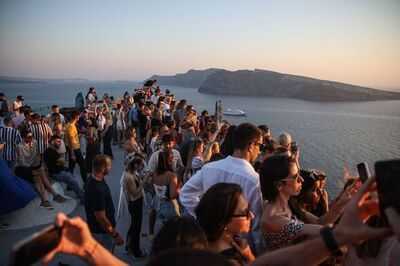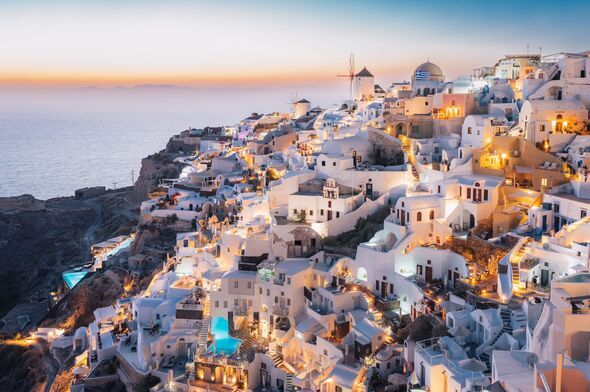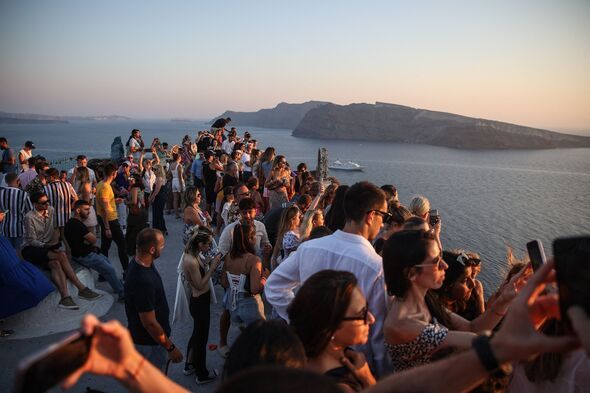

Despite being hailed as one of the most iconic destinations in the world, Greece's Santorini is now facing an unusual problem as after 6pm, its bustling towns empty out, leaving behind deserted streets, struggling businesses, and a growing sense of unease among locals.
Known for its whitewashed buildings, azure domes, and famous sunsets, Santorini attracts millions of tourists each year. On peak summer days, as many as 17,000 cruise ship passengers descend on the island, funnelling into popular towns like Fira and Oia. But according to Gianluca Chimenti, a local tour operator who has lived on the island for 18 years, the crowds vanish almost as quickly as they arrive.

"Social media shows something completely different from reality," Chimenti told CNN. "The truth is that the island is empty after the ships leave. It's like a ghost town, it's the worst season I've ever seen."
Cruise ships typically dock in the morning and depart by early evening.
The influx of tourists clogs the island during daylight hours, but the island's economy relies on sustained visitors who stay overnight, something Santorini is seeing less and less of.
Chimenti estimates that hotel occupancy this year is down to around 30% of normal levels, and restaurants and shops are suffering as a result.
"It's a system failure," Chimenti said.
"Tourists want to visit, but they're scared off by the perception of overtourism. Meanwhile, we're sitting here with empty rooms and empty tables."
He believes part of the solution lies in smarter tourism management.
"Santorini has one of the most important archaeological sites in Europe, but cruise tours rarely include it.
"If tourists were spread across different areas of the island at different times, we wouldn't see this bottleneck followed by emptiness."
While Santorini's beauty continues to attract global admiration, the current model driven by short-stay cruise visits is proving unsustainable for locals.
The challenge now is finding a balance between preserving the island's appeal and revitalising the local economy.